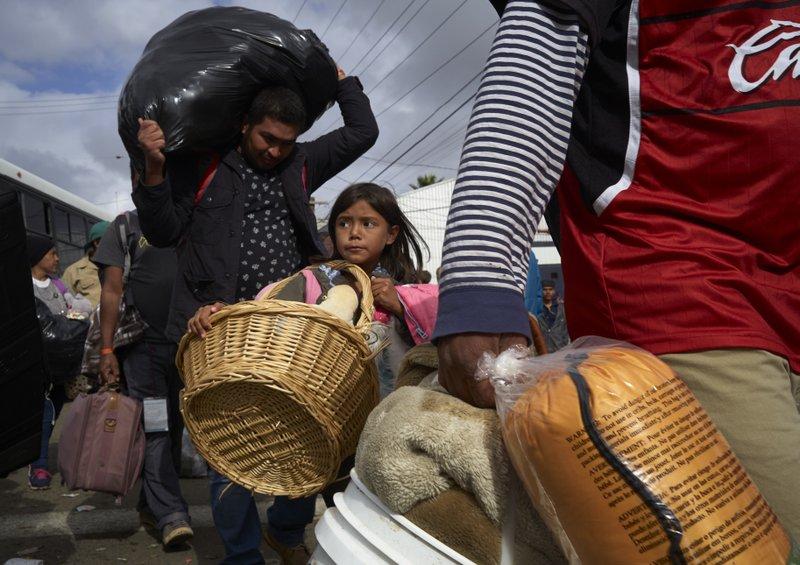TIJUANA, Mexico—Mexican authorities began moving Central American migrants out of an overcrowded shelter near the U.S. border and taking them to a former concert venue much farther away in Tijuana, warning Friday that services will be cut off at the first site.
Hundreds of migrants boarded buses at the overcrowded sports complex within view of the border for the trip to the new shelter about 10 miles (15 kilometers) from the border crossing at Otay Mesa and 14 miles (22 kilometers) from San Ysidro, where asylum claimants line up.





